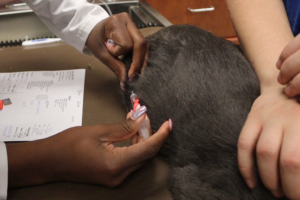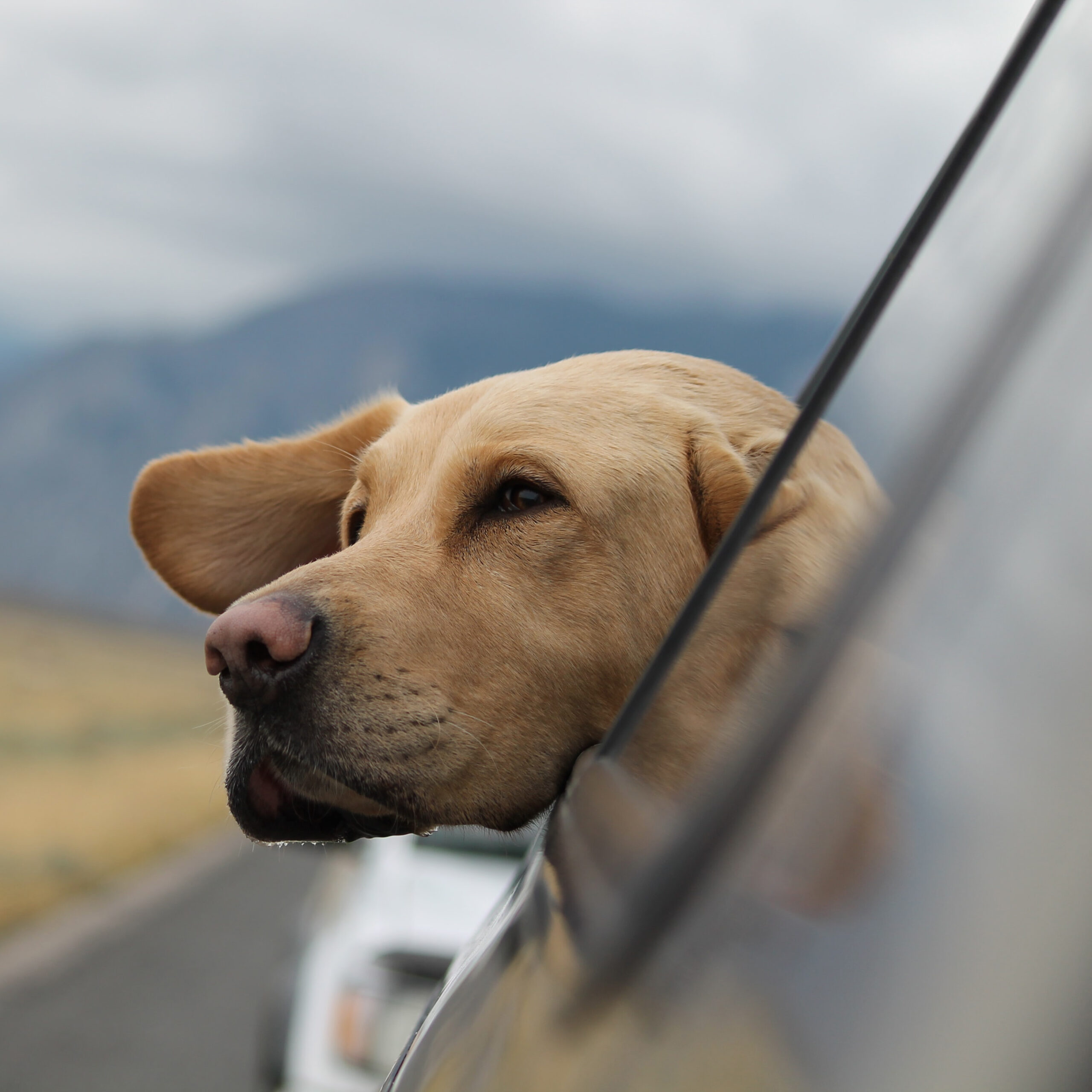Dr. Aryn Bordman explains what steps pet owners need to do if they plan on traveling with their pets during the holiday season.
 With the holiday season right around the corner, many Las Vegas residents will be making plans to travel to see friends, family or to simply enjoy some time off with their loved ones. Since the holidays are a popular time for traveling, it’s only fair to want to include our pets during our travels.
With the holiday season right around the corner, many Las Vegas residents will be making plans to travel to see friends, family or to simply enjoy some time off with their loved ones. Since the holidays are a popular time for traveling, it’s only fair to want to include our pets during our travels.
Traveling with your pet can be stressful but your veterinarian can help with some of the processes. However, it does not replace your own research as to what you will need for your trip and your pet’s paperwork.
Up-to-Date on Vaccines?

Are you traveling to areas with a high mosquito population, a forested area with ticks, spending time near lakes? Have heartworm, tick, and flea prevention on board, and the Lyme vaccine. If you are going to be near water sources, you should consider the leptospirosis vaccine for your pet.
While traveling, it’s important to protect your pets from excess heat and dehydration. Just like you would for yourself, make sure your pet has access to plenty of water and take breaks during your treks to recuperate.
These are easy preventative measures to protect your pets from potentially life-threatening diseases. When traveling with your pet, it’s important to understand the requirements of the state you’re traveling to regarding the movement of animals across state borders.
Road Trips

Courtesy: Lauren Guardala/Unsplash.com
Most often an interstate health certificate is necessary. If you plan on driving or taking road trips with your pet, make sure your pet is comfortable in the car. If your pet is very anxious while driving, this can make for a very stressful road trip. Try to train your pet to be calm while in the car. This is best done ahead of time.
If your pet is anxious regardless, then find ways to help them calm down. Calming collars or sprays (such as Adaptil or Feliway) are good first steps to try. If your pet is still anxious, medication prescribed by your veterinarian may be necessary to keep them relaxed. Depending on the length of travel, it may be recommended to withhold food the morning before travel to avoid motion sickness while in the car. Water access is still important, but make sure to make some stops on the way to allow your pet to relieve themselves.
If you’re traveling with cats, having a nice-sized crate for them to be able to lay down in with enough space for a small litter box and a secured water source is recommended. However, your cat may not be interested in water, eating, or using the litterbox until they’re no longer in the car. Take this into consideration with how long you intend to drive as you don’t want them to become dehydrated during your travels.
Make sure you keep your car cool! A long drive can become very hot and certain breeds are more susceptible to overheating, primarily brachycephalics or squishy-faced dogs, like Bulldogs, Boxers, Shih-Tzus, and even some Pit bulls. But any dog can be affected by the heat. Make sure your car’s AC is working and that your pet has access to plenty of water.
Flying

Courtesy: James Yarema/Unsplash.com
Similar to road trips, it’s important to make sure your pet is comfortable with travel if you plan on flying with your pet. Having an international health certificate is required and it’s important to plan months in advance to ensure that your pet meets all the necessary requirements to travel. Be sure to also check with the airline’s pet policies on what they do and do not allow when it comes to traveling with pets.
If your pet is prone to motion sickness, treating this ahead of time can help make traveling easier for your furry friend. Depending on the length of the flight, it may be recommended to not feed them, or only feed a small amount of food, to reduce their risk of vomiting while in the air.
Know the laws and requirements. Interstate and international health certificates are important pieces of paperwork to have if you plan on traveling with your pet, and you may also need proof of vaccination status.


